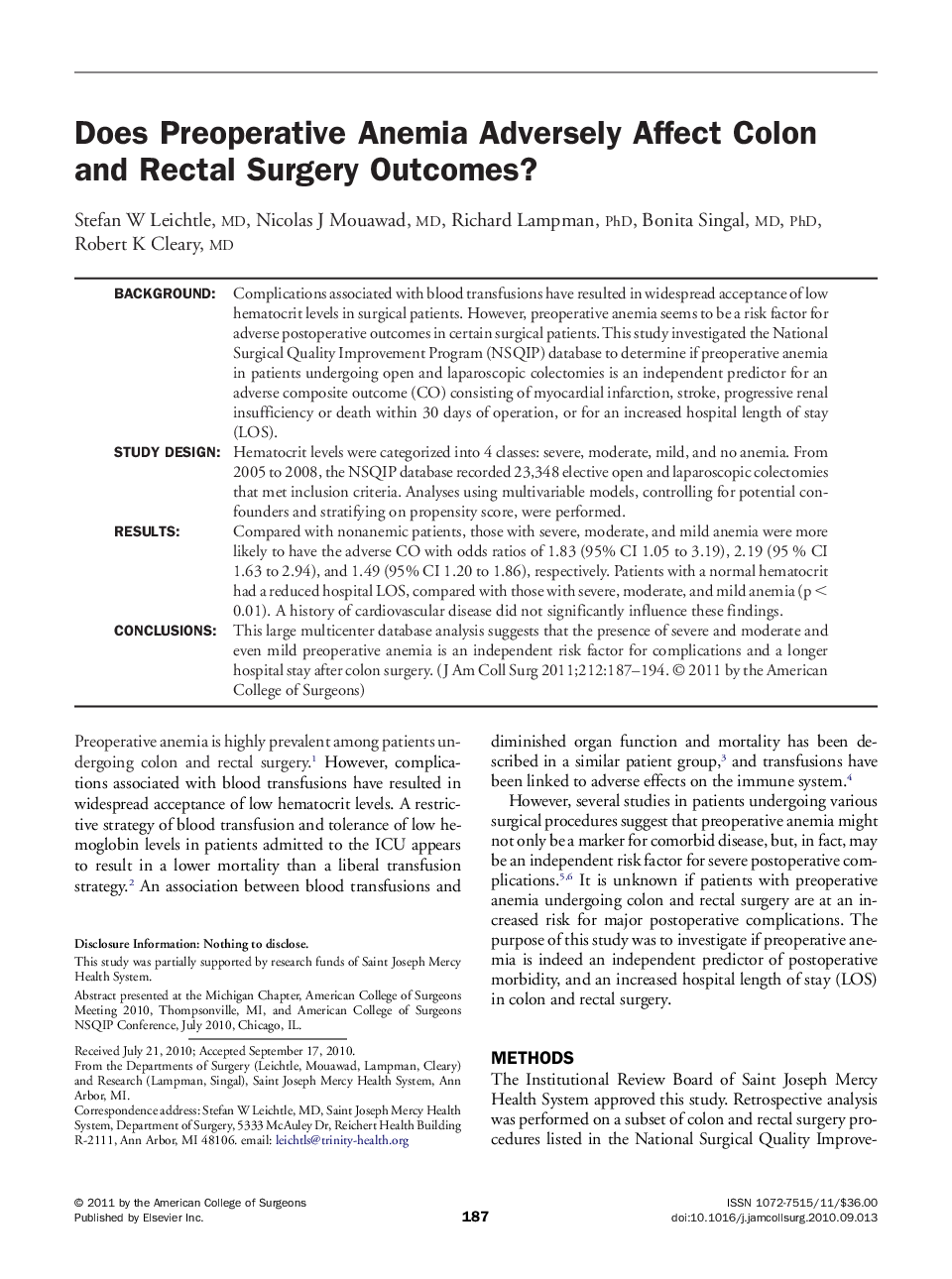| Article ID | Journal | Published Year | Pages | File Type |
|---|---|---|---|---|
| 4294473 | Journal of the American College of Surgeons | 2011 | 8 Pages |
BackgroundComplications associated with blood transfusions have resulted in widespread acceptance of low hematocrit levels in surgical patients. However, preoperative anemia seems to be a risk factor for adverse postoperative outcomes in certain surgical patients. This study investigated the National Surgical Quality Improvement Program (NSQIP) database to determine if preoperative anemia in patients undergoing open and laparoscopic colectomies is an independent predictor for an adverse composite outcome (CO) consisting of myocardial infarction, stroke, progressive renal insufficiency or death within 30 days of operation, or for an increased hospital length of stay (LOS).Study DesignHematocrit levels were categorized into 4 classes: severe, moderate, mild, and no anemia. From 2005 to 2008, the NSQIP database recorded 23,348 elective open and laparoscopic colectomies that met inclusion criteria. Analyses using multivariable models, controlling for potential confounders and stratifying on propensity score, were performed.ResultsCompared with nonanemic patients, those with severe, moderate, and mild anemia were more likely to have the adverse CO with odds ratios of 1.83 (95% CI 1.05 to 3.19), 2.19 (95 % CI 1.63 to 2.94), and 1.49 (95% CI 1.20 to 1.86), respectively. Patients with a normal hematocrit had a reduced hospital LOS, compared with those with severe, moderate, and mild anemia (p < 0.01). A history of cardiovascular disease did not significantly influence these findings.ConclusionsThis large multicenter database analysis suggests that the presence of severe and moderate and even mild preoperative anemia is an independent risk factor for complications and a longer hospital stay after colon surgery.
